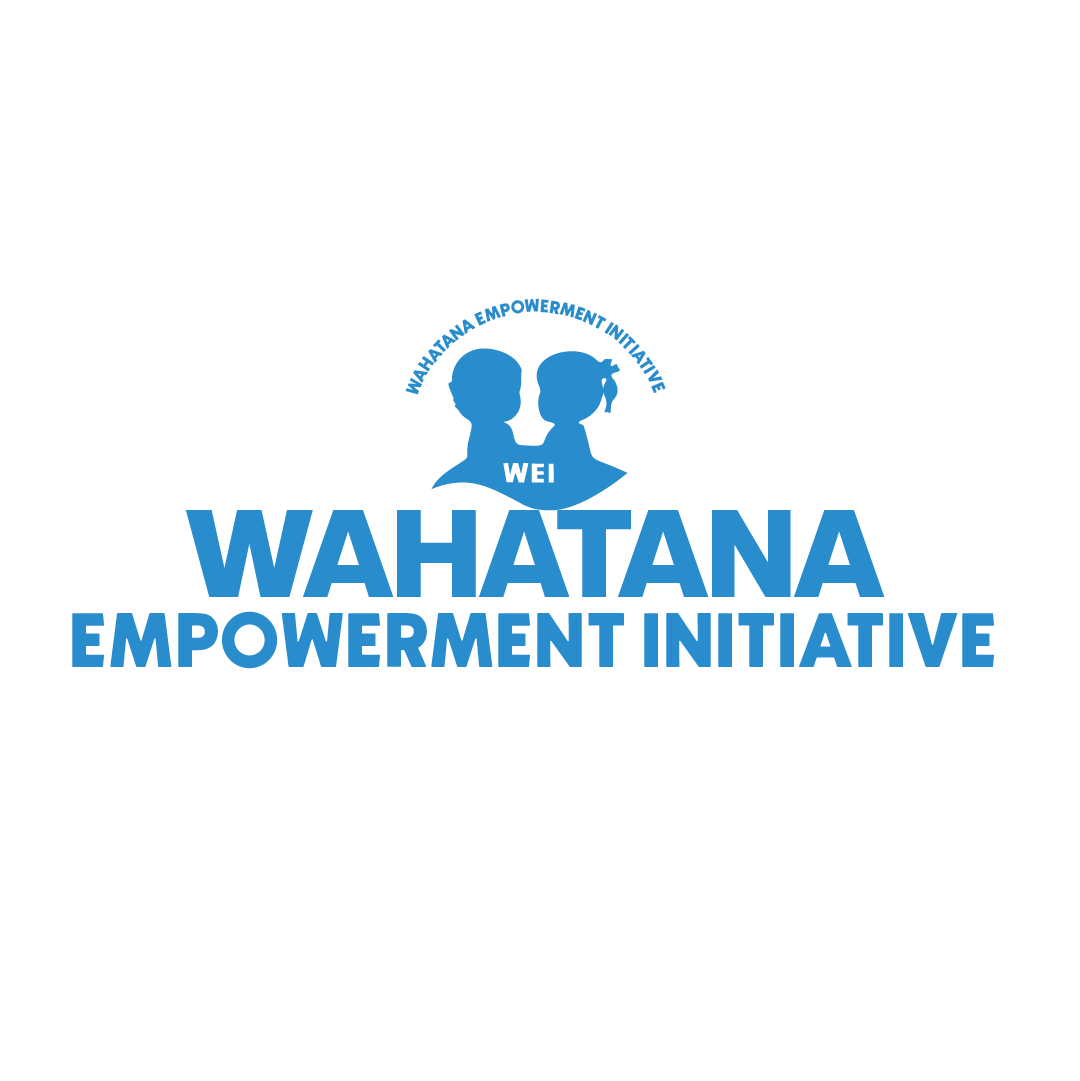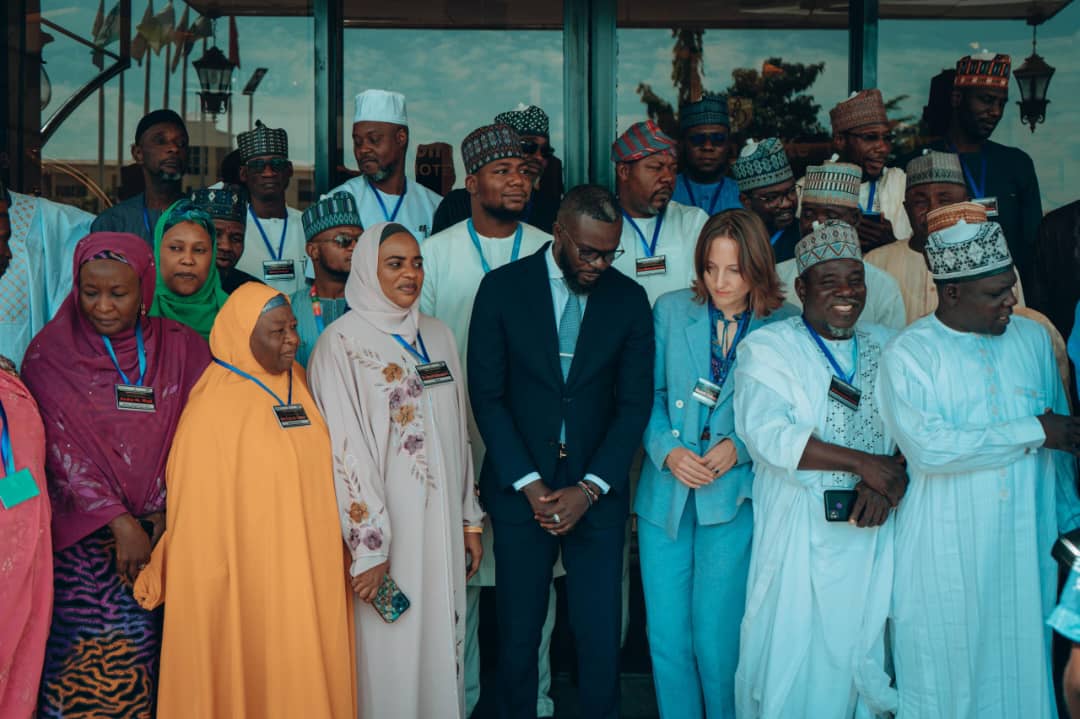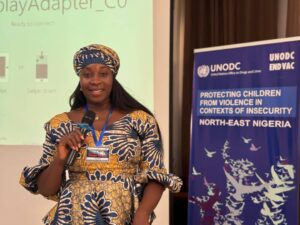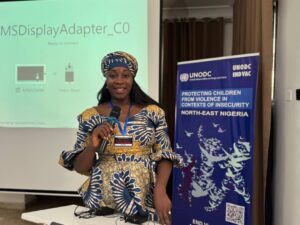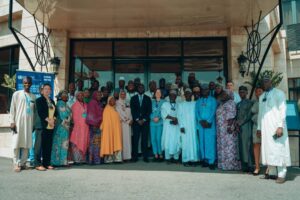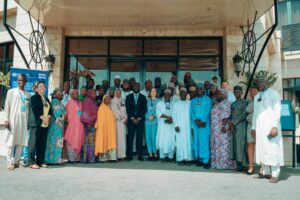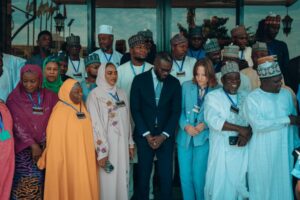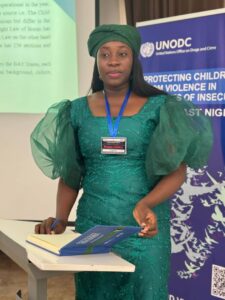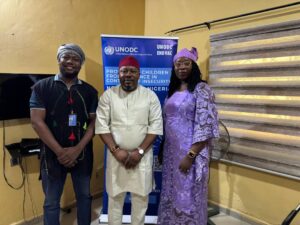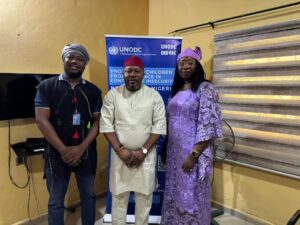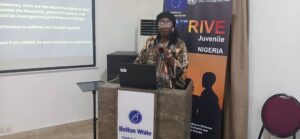Across the conflict-affected regions of Adamawa, Borno, and Yobe, hundreds of children have been forcibly recruited or exposed to violence by terrorist and armed groups. At Wahatana Empowerment Initiative (WEI), we believe that no child should be defined by violence — only by their potential to heal, learn, and lead.
That’s why WEI is proud to be part of the Adamawa State Committee established by the United Nations Office on Drugs and Crime (UNODC) and supported by the European Union, working to rehabilitate and reintegrate children involved with armed groups. This committee is part of the wider “Nigeria Call to Action” initiative under the UNODC’s End Violence Against Children (ENDVAC) program.
For over a decade, northeastern Nigeria has witnessed prolonged insecurity due to insurgency and armed violence. In the midst of this chaos, children have been targeted, recruited, and exploited by terrorist groups — used as messengers, fighters, spies, or subjected to unspeakable abuse.
Many of these children are not perpetrators — they are victims, coerced into violence or survival-based decisions. Unfortunately, after their release or escape, they often face stigma, rejection, or even criminalization, with little access to support systems.
Recognizing the urgency, the UNODC launched “Protecting Children from Violence in Contexts of Insecurity” — a landmark initiative focusing on:
-
Preventing further recruitment and victimization
-
Rehabilitating and reintegrating affected children
-
Strengthening legal and institutional frameworks
-
Fostering a whole-of-government and society response
This program led to the formation of State-level Committees in Adamawa, Borno, and Yobe to ensure localized coordination and accountability.
WEI’s Role: Ground-Level Action Meets Policy Reform
As a recognized grassroots humanitarian organization in Adamawa State, Wahatana Empowerment Initiative (WEI) was selected as a member of the State Committee. Our inclusion reflects our deep community roots and long-standing commitment to child protection, psychosocial support, and education.
Through our involvement, we’re helping to:
-
Review and shape policy guidance documents tailored for Adamawa State
-
Advocate for survivor-centered reintegration approaches
-
Support the development of operational protocols that prioritize protection, not punishment
-
Ensure sustainability by linking communities to state systems
The February 2025 Workshop: Building Capacity for Long-Term Impact
From February 17–18, 2025, WEI participated in the UNODC-led State Committee Workshop held in Abuja.
This intensive session focused on:
-
Understanding child recruitment by armed groups
-
Reviewing the national and state-level legal frameworks
-
Validating State Policy Guidance Documents for child protection
-
Developing practical, context-sensitive operational strategies
-
Exchanging best practices with stakeholders from Borno and Yobe
WEI contributed community-based insights and emphasized the need for inclusive, trauma-informed reintegration practices that actively involve families, educators, and religious leaders.
When children associated with armed groups return home, they need more than shelter — they need understanding, opportunities, and protection from re-recruitment.
WEI continues to advocate for:
-
Psychosocial counseling and trauma recovery
-
Safe return to education and vocational training
-
Family and community reintegration programs
-
Ongoing monitoring to reduce stigma and prevent exploitation
“These children are not the enemy. They are survivors. And with the right support, they can thrive again.” — WEI Program Coordinator
Our Vision Moving Forward
WEI is committed to supporting the operationalization of the Nigeria Call to Action at the grassroots level. We will continue to:
-
Strengthen community-based child protection networks
-
Train local actors in child-sensitive case management
-
Promote reintegration models that align with international child rights standards
-
Collaborate with state, national, and international partners for broader impact
Project Gallery
Every child deserves a second chance — and every community has a role to play in making that happen. Whether you are a policymaker, donor, development partner, or advocate, your support helps us create pathways to hope, healing, and belonging.
